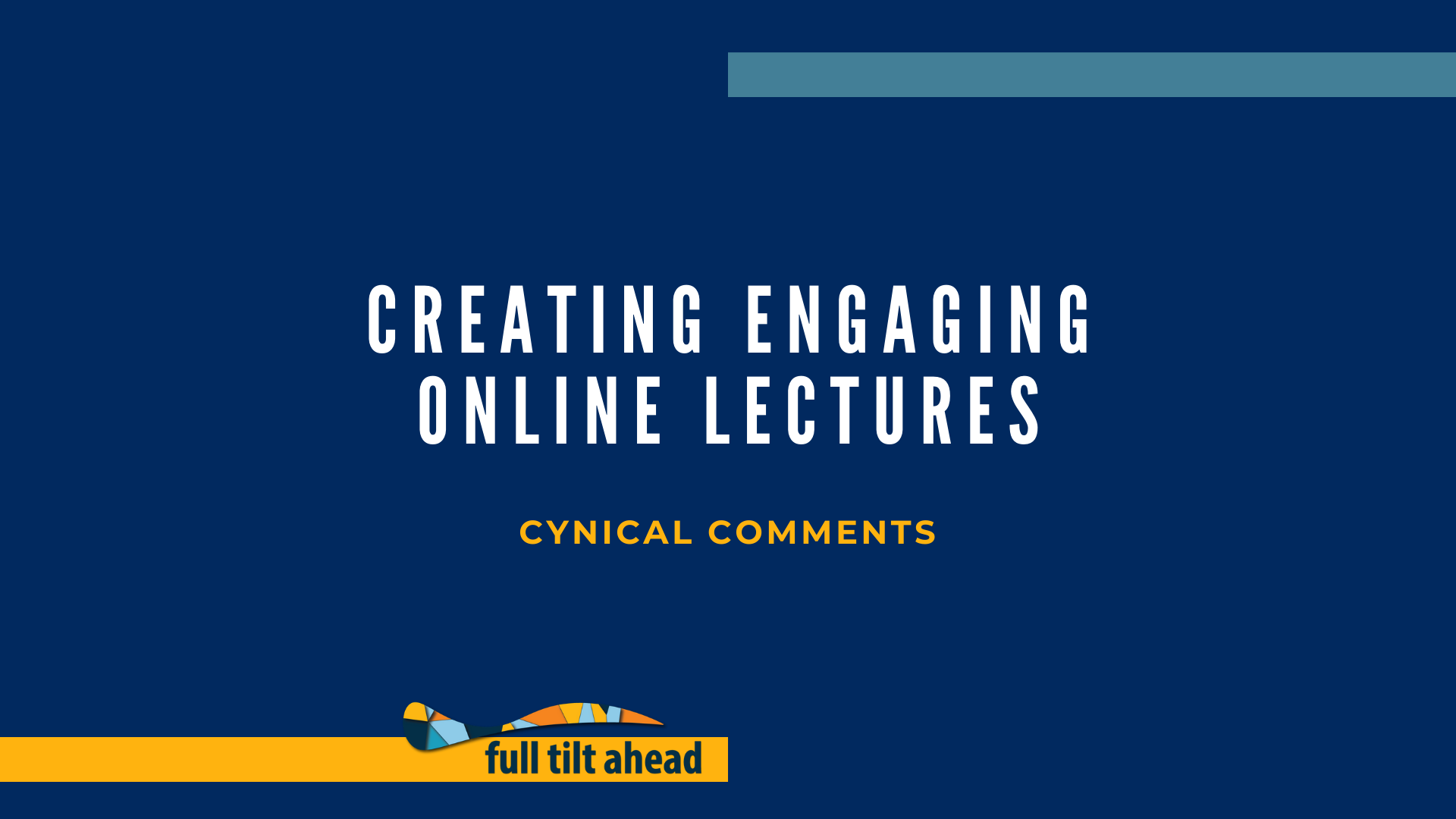Keeping Students Engaged
As classes transition to an online synchronous format, one of the biggest challenges we’ve heard about from faculty has to do with retaining the attention of their students through the duration of a lecture. In an in-person setting, students are a captive audience. But when students are not directly with you, it can not only be difficult to gauge and react to their reactions and expressions but can be challenging to even get them to participate in the live session. Over the next few weeks, we’ll be sharing some live session facilitation ideas that will offer some unique ways to break up the monotony of a sage-on-the-stage approach to lectures and deliver a significant learning experience by drawing students into the content. Let’s take a look at our first idea.
Cynical Comments
Basic Idea:
While you are presenting, cynical and challenging comments are scrolling in the chat box.
Application:
This lecture format is especially useful when you are trying to persuade the audience to explore new or controversial concepts.
Flow:
- Assign the skeptic’s role to a class member with a sarcastic sense of humor.
- Change the name of this person in Zoom to Mind Reader (Manage Participants>Rename).
- Tell the class that there is a special mind reading participant in the class today who will read their classmates’ thoughts and enter them into the Chat box as a running commentary.
- The skeptic should be typing cynical but realistic comments as you make your presentation.
- Stop periodically and ask other students to read aloud some of the cynical comments so you can respond appropriately.
If you found this exercise interesting, then check back in with us next week as we continue to showcase engaging online lecture ideas! Got engaging lecture ideas of you own? Tweet us and tell us all about them!
This engaging lecture idea is part of a series created by the Thiagi Group.

